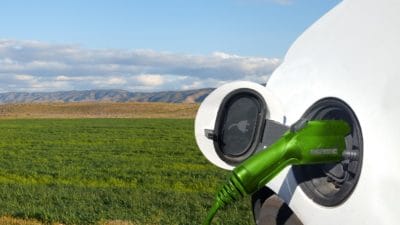Companies’ annual reports routinely contain a wordy section on risk. The idea is simple: to outline to their investors the principal risks that the business faces, and the steps that the companies in question have taken to minimise or mitigate these risks.
To me, such risk statements often don’t really add a lot of value. I’m rarely surprised by what they contain, and rarely come away better informed.
Being charitable, I suppose that they show that the relevant sub-committee of the board has at least considered the risks in question, and that some sort of thought has been given to how they might be minimised or mitigated.
But I can’t think of a single occasion where the risk statement actually changed my mind about a company, and about the desirability or otherwise of investing in it.
Expert insight
Published in 1992, Accounting for Growth was a remarkable book.
Written by Terry Smith, then a little-known investment analyst, it lifted the lid on a number of dodgy accounting practices, all of which served to flatter a company’s accounts. And most of which were not only legal, but relatively widespread.
So if you see a copy in a secondhand bookshop, take a look – it’s well worth a read, even today.
Not that any of us will be going into secondhand bookshops in the near future, of course.
Horses and stable doors
These days, Terry Smith is rather better known: he’s the chief executive of fund management firm Fundsmith, and judging from his interviews and newspaper articles, he appears to be as outspoken as ever.
And as he’s just pointed out, prior to the coronavirus crisis, mentions of global pandemics in corporate risk statements were vanishingly few, if any. But going forward, he thinks that it will be a rare annual report that doesn’t list pandemics as a major risk.
As he sagely observes, it’s not just generals who are prone to fighting the last war.
To which I’d add another observation. Even though we appear to be going from no mention at all of global pandemics in annual reports to wall-to-wall coverage of them, the underlying probability of a pandemic hasn’t changed.
The risk of a pandemic was present before, and it’s just as likely to occur again. What has changed is our perception of risk, not the actual prevalence of risk.
Lower profits, higher inflation?
Going forward, there’s a lot of talk about ‘the new normal’. You know: socially distanced workplaces, and all the rest of it.
The big thrust seems to be to get shuttered businesses re-opened, and furloughed employees back to work.
But I’ve seen almost no discussion of the impact of the new normal on corporate profitability. Which, when you think about it, is odd.
For it stands to reason that socially distanced factories and shops are going to be operating more expensively, and with lower levels of production and sales. Likewise airlines flying with empty rows of seats, and pubs and restaurants kept half-full. Like it or not, the danger is of a new normal in corporate profitability.
Think for a moment, too, about how those lower volume levels will interact with businesses’ overheads – which will have to be spread over a lower level of activity. Economies of scale only happen at scale: if there isn’t the scale, there won’t be the economies.
So to me, that spells inflation, as well.
Call it early; call it right
At the moment, relatively little is known about how Britain will get back to work, and what that new world of work will look like.
Very little, too, is known about the ongoing strength of consumer demand. And, to be blunt, we need to know about that before it is possible to make any assessment of whether the recovery will be V-shaped, U-shaped, or some other shape.
In the weeks ahead, doubtless more will become apparent.
Whatever the new normal looks like, there will be winners and losers. And for investors, that brings opportunity.
As with the recovery in 2009, fortune is likely to favour the brave. Some will call it early – but only some will call it correctly.







